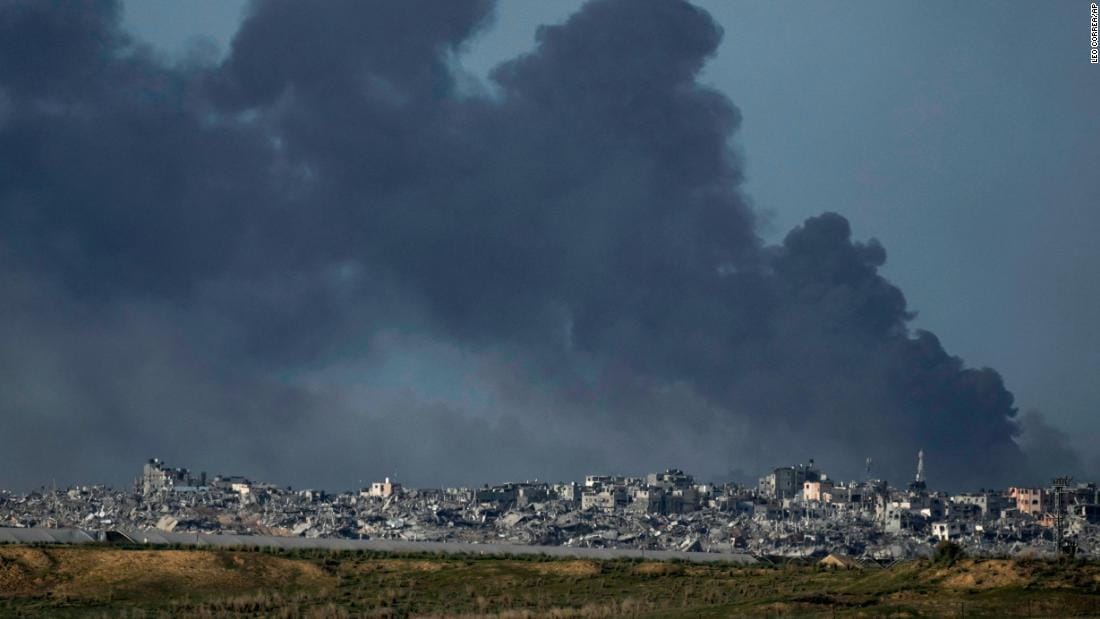The situation in Gaza remains tense as Israeli officials express their anticipation for a response from Hamas concerning the final draft of a proposed agreement. This draft, which has been the result of extensive negotiations over the past few weeks, aims to establish a framework for a ceasefire and facilitate humanitarian aid to the region. The discussions have been marked by a complex interplay of political, social, and security considerations, reflecting the deep-rooted issues that have long plagued the Israeli-Palestinian conflict.
The negotiations have involved various stakeholders, including international mediators who have sought to bridge the gaps between the two parties. The proposed agreement is seen as a critical step towards alleviating the humanitarian crisis in Gaza, where the population has faced significant challenges due to ongoing violence and blockades. The draft outlines provisions for the delivery of essential supplies, including food, medical aid, and other necessities, which are crucial for the well-being of the civilian population.
Israeli officials have emphasized the importance of ensuring that any agreement includes robust security measures to prevent future escalations of violence. The concerns regarding security are paramount, particularly in light of previous conflicts that have resulted in significant loss of life and destruction. As such, the draft includes stipulations aimed at addressing these security concerns while also allowing for the flow of humanitarian aid into Gaza.
Hamas, the governing authority in Gaza, has been under pressure to respond to the draft agreement. The organization faces internal and external challenges, including the need to maintain its political legitimacy while addressing the dire needs of the population it governs. The response from Hamas is expected to reflect a balance between these competing interests, as the organization navigates the complexities of the current situation.
The international community is closely monitoring the developments surrounding the proposed agreement. Many countries and organizations have expressed their support for a peaceful resolution to the conflict and have called for both parties to engage in constructive dialogue. The potential for a ceasefire and the provision of humanitarian aid are seen as essential components for fostering stability in the region.
As the deadline for a response approaches, both Israeli and Hamas officials are under increasing pressure to reach a consensus. The stakes are high, as the outcome of these negotiations could have far-reaching implications for the future of Gaza and the broader Israeli-Palestinian conflict. A successful agreement could pave the way for a more stable and peaceful environment, while a failure to reach an accord could lead to further violence and suffering for the people of Gaza.
In addition to the immediate humanitarian concerns, the negotiations also touch upon broader issues related to the Israeli-Palestinian conflict. The historical grievances, territorial disputes, and questions of sovereignty remain central to the discussions. Any agreement that emerges from these negotiations will need to address not only the immediate needs of the population but also the underlying issues that have fueled the conflict for decades.
The response from Hamas is expected to be carefully crafted, taking into account the sentiments of its constituents as well as the broader geopolitical landscape. The organization has historically been resistant to external pressures, and its leadership will need to weigh the potential benefits of an agreement against the risks of appearing to compromise on key issues.
As the situation unfolds, the international community continues to advocate for a peaceful resolution. Diplomatic efforts are ongoing, with various countries offering to mediate and support the negotiations. The hope is that a successful agreement can lead to a lasting peace and improved conditions for the people of Gaza, who have endured significant hardships as a result of the ongoing conflict.
In conclusion, the anticipation surrounding Hamas’s response to the final draft of the Gaza agreement underscores the complexities of the situation. The negotiations represent a critical juncture in the ongoing conflict, with the potential to impact the lives of millions. As both parties navigate the challenges ahead, the focus remains on achieving a resolution that prioritizes humanitarian needs while addressing security concerns.



